
Film 'Humans of Humanities' festively premiered in Trianon
It's easy to forget in these turbulent times, but on March 9th the film 'Humans of Humanities' premiered in cinema Trianon in Leiden. 160 guests saw Leiden scientists, teachers, students and alumni talk on the big screen about the value of their work as a humanities scholar. The film was followed by an interesting panel discussion. Is the value of the humanities visible enough in society?
An important role
In a rapidly changing world, the nuanced and contemplative role of the humanities scholar is becoming increasingly important. In the short documentary 'Humans of Humanities', six scientists, lecturers, students and alumni of Leiden's Faculty of Humanities talk about the value of the humanities in modern society. You can watch the full film online.
A message that is certainly also important for an external audience, but during this first premiere students and staff of the faculty itself were given a sneak preview of the film. They were also able to ask questions to the 'leading ladies and gents' Rick Honings, Romy Heymans, Maria Gabriela Palacio, Joke Bruynzeel and Rob Zwijnenberg. Nadia Bouras, who was also interviewed for the project, unfortunately couldn't be present due to her teaching commitments.
Panel discussion
After the film, five panel members, led by philosopher (and YouTube star) Victor Gijsbers, talked about the value of the humanities. At the end of this article we will shortly recap the panel discussion with Professor of Urban Culture Ariadne Schmidt, Lecturer Dutch Studies Olga van Marion, Lecturer Islam Studies Ahab Bdaiwi, diplomat and sinologist Flip de Heer and Middle Eastern Studies student Madina Faiz for you.
Due to the selected cookie settings, we cannot show this video here.
Watch the video on the original website orBelow we will shortly recap the panel discussion for you.
Why are the humanities so important?
According to Middle Eastern Studies student Madina Faiz, Humanities is the place to think critically about all kinds of phenomena: 'Our current society is more complex than ever before. It is important to look at things from a broad perspective. By looking back on historical events, we learn more about how to deal with certain occurences in the present. If there's one thing I've learned, it's that in the humanities there are no simple answers to complex questions'.
What is the message of the film?
As humanities scholars we have a responsibility and we have to be aware of that', says Islam Studies lecturer Ahab Bdaiwi, winner of the Impact Prize 2019. People who have never learned to think critically about different kinds of issues see us as an authority. That's a moral burden because you have to make sure that you don't create the wrong type of impact. Ask yourself exactly why you want to make an impact. Telling a different story often upsets people. But that's good, that's healthy. As a critical humanities scholar, you have to be able to make the audience feel uncomfortable because then you force them to revise their knowledge'.
What is the best way we can use the film?
'We must spread out!', jokes Flip de Heer. 'Let's share our message with politicians, on social media, and in other places than Leiden. This film is perfect for that'. Olga van Marion is critical: 'I think the film is too beautiful. We don't need this beautiful packaging to spread our message. Shouldn't we be more aggressive in our approach? It might be a bit old-fashioned to think that after watching a film - in which we speak to them - people are suddenly convinced.'
So, what is the way?
'Our critical distance enables us to apply nuance in all sorts of areas and I can see that in the film', Ariadne adds. But we should not confuse our nuanced role with modesty. To me, the film seems a good starting point for a discussion. You could also show people the shortened version or only parts of it. But this is just this one way to spread our message, there are other ways as well. We have work to do: build bridges between the university and the outside world, start collaborations and use the already existing infrastructures to do so.'
Ahab concludes: 'In order to generate interest you have to remind the public that in the past we have also stood for a certain matters of humanities. In that way you create contemporary relevance. This film was made to remind people, who are not already familiar with the humanities, of why we matter.'
Premiere in pictures
-
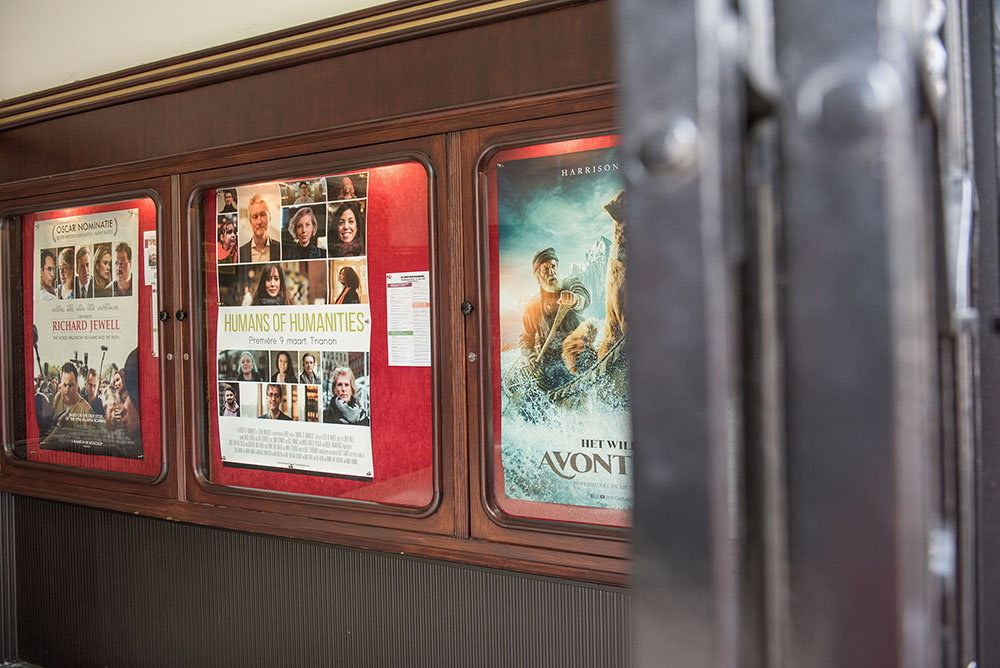
-
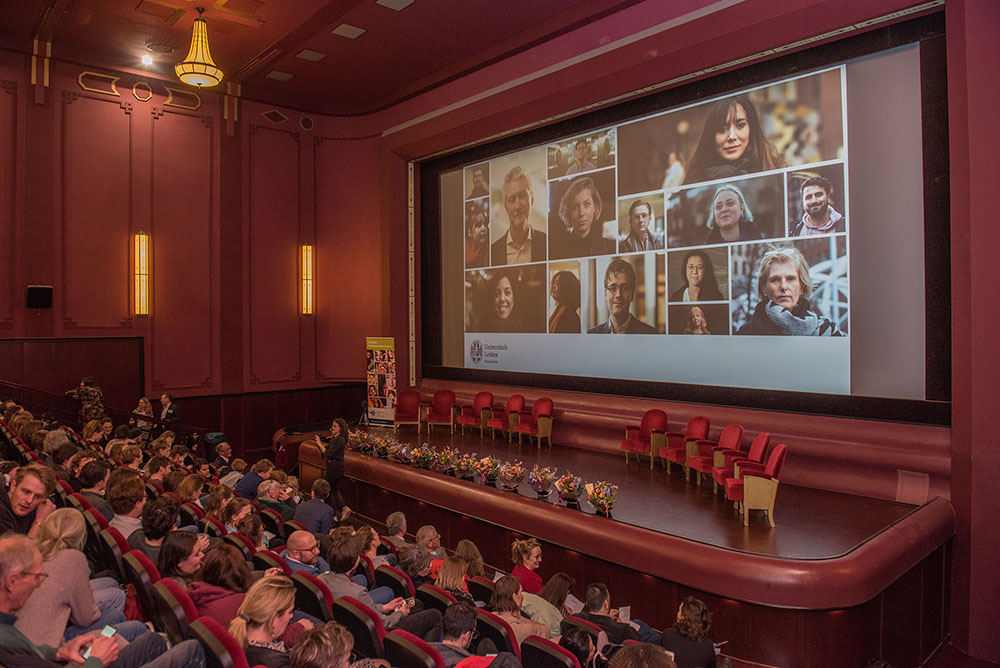
-
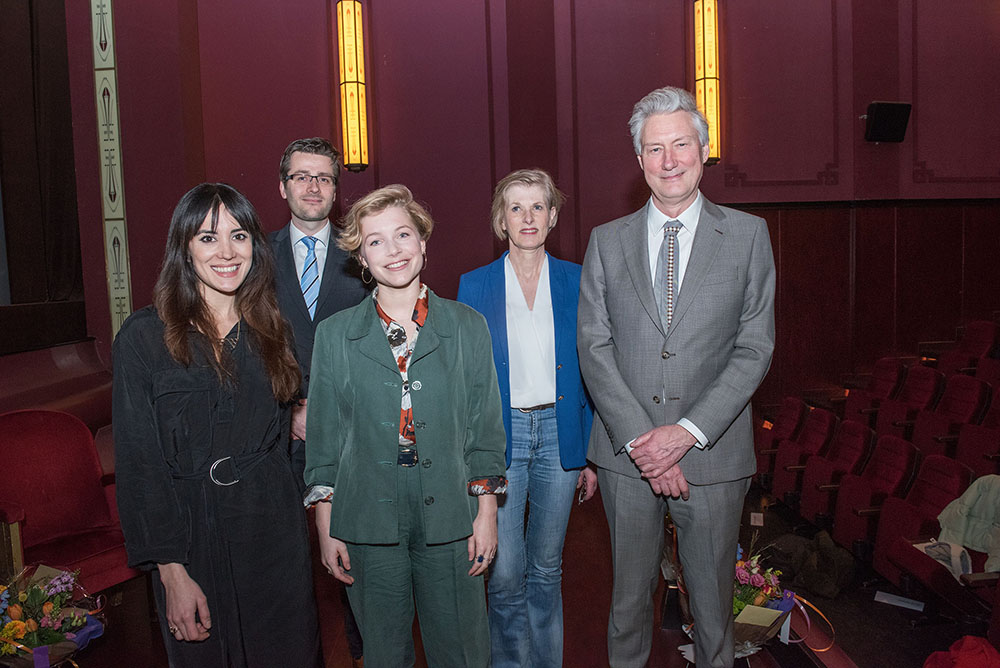
The leading ladies and gentlemen of 'Humans of Humanities'. -
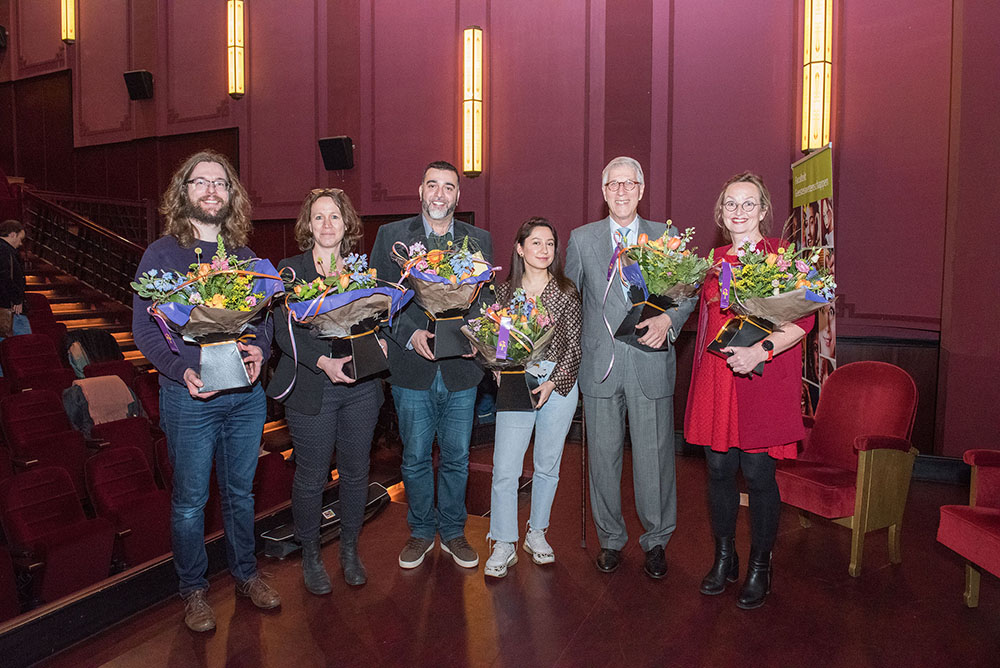
The panel. -
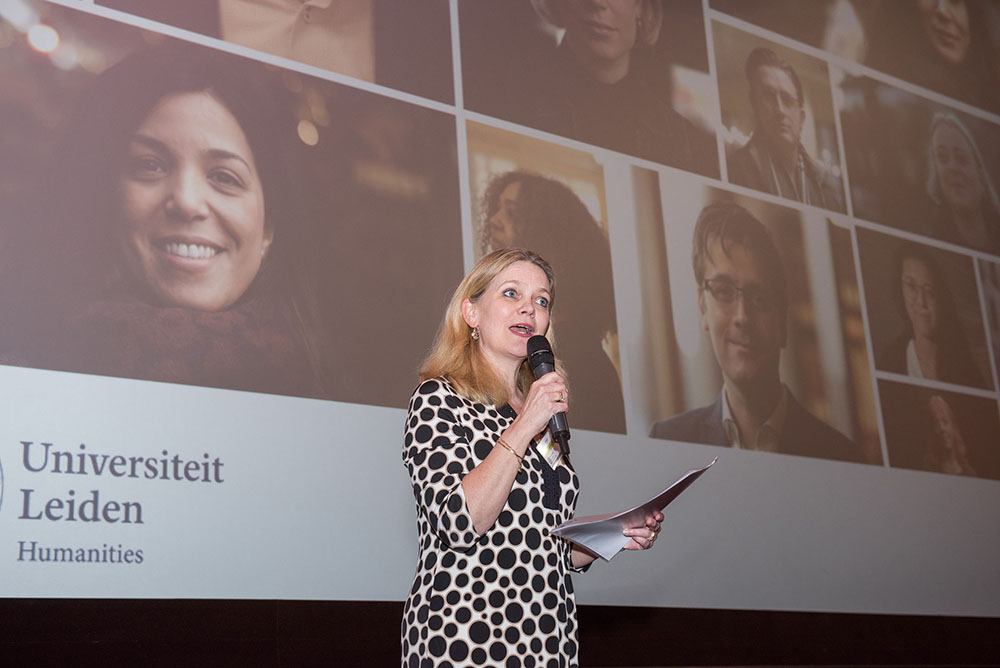
Christine Smittenaar (Head of Communication and Marketing) introduced the film. -
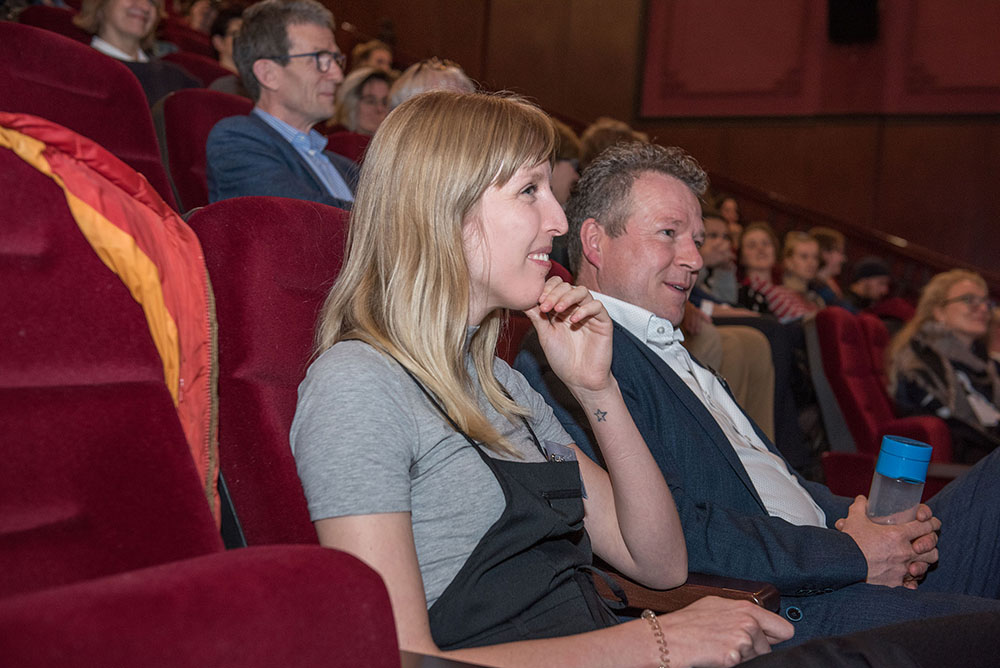
-
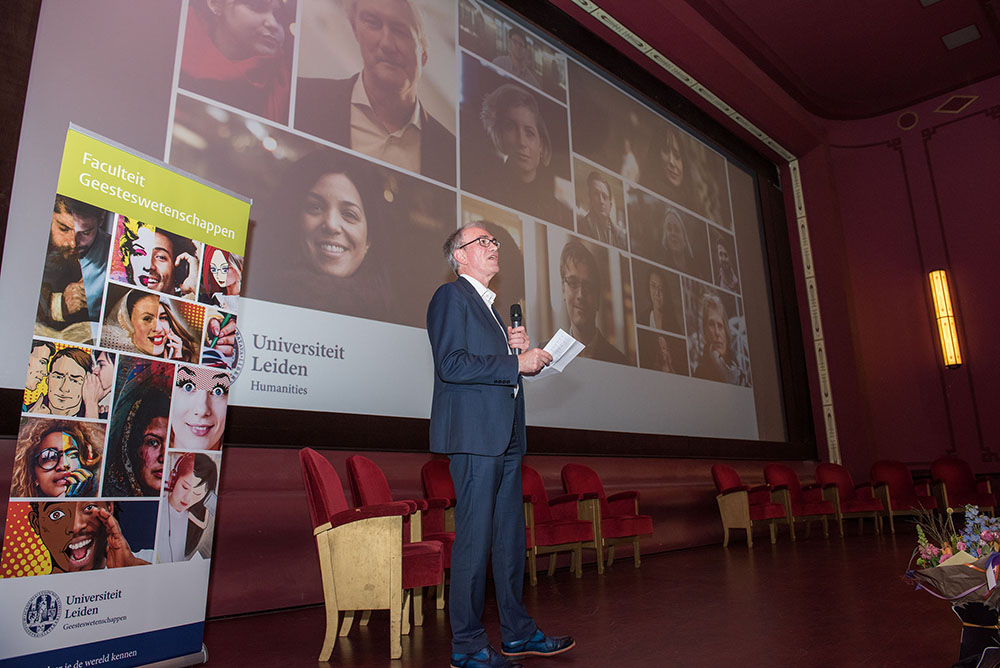
Humanities dean Mark Rutgers during his opening speech. -
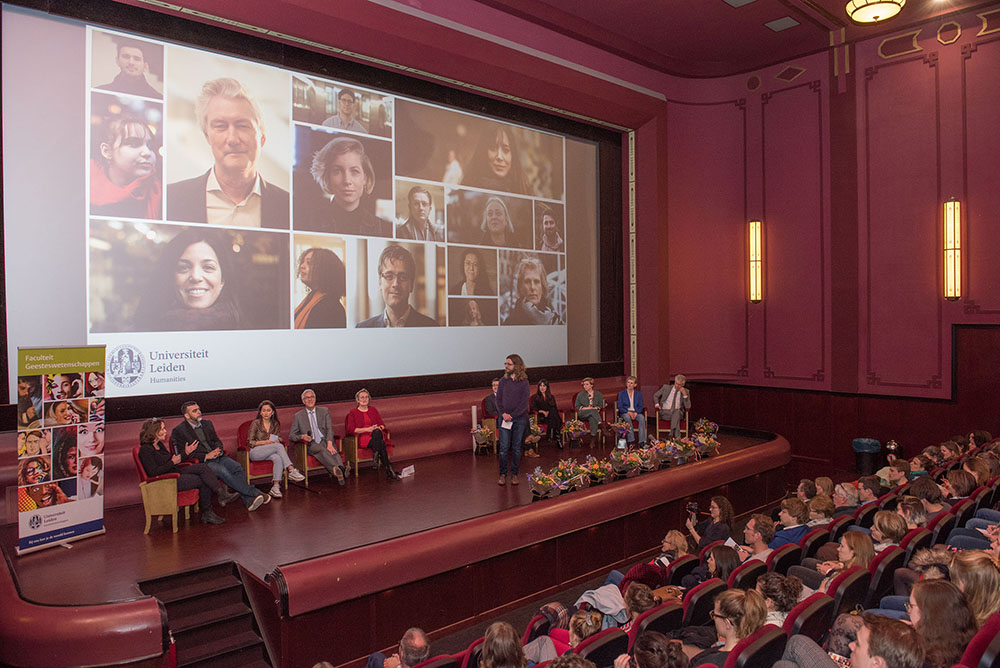
-
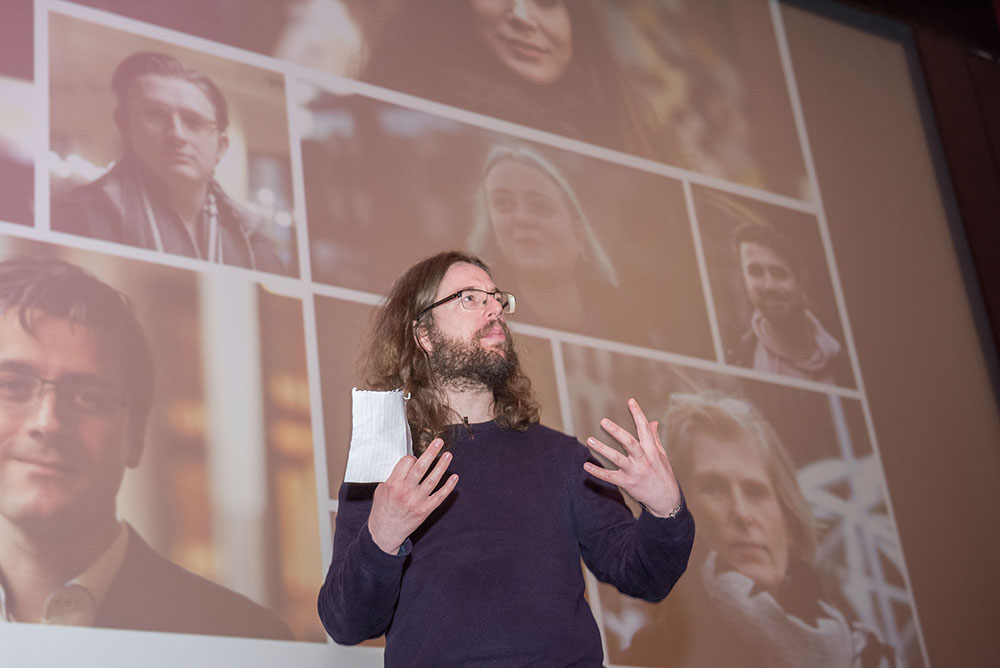
Moderator Victor Gijsbers led the panel discussion. -
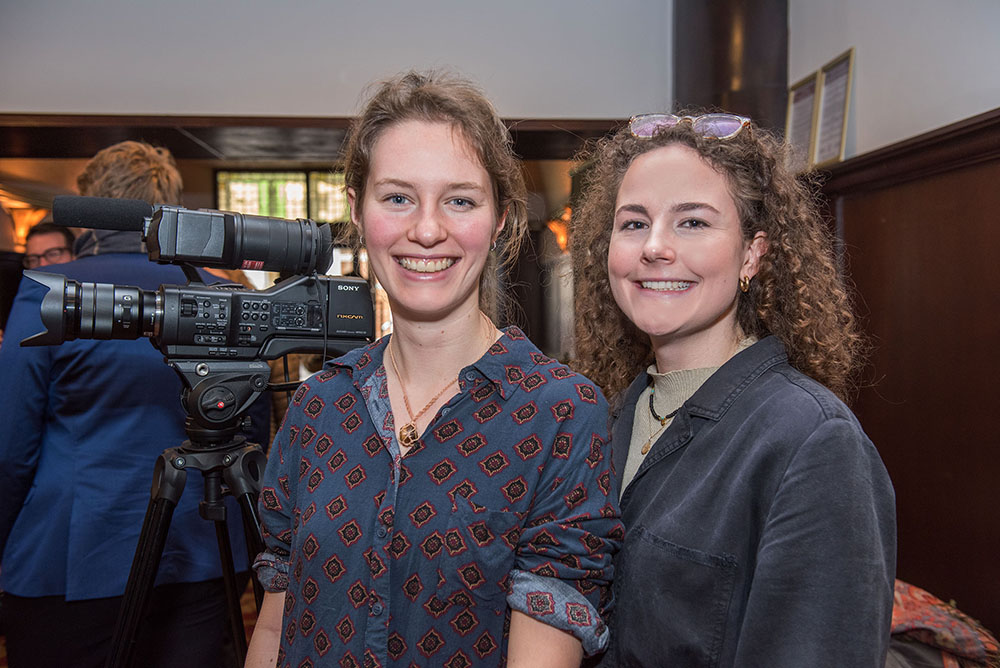
The aftermovie crew: Inge van Dijck and Emilie van Kinschot made the aftermovie of the premiere.
Contact us
Do you want to say something about the film or do you want to comment on the visibility of humanities? Mail the Communication and Marketing department via communicatie@hum.leidenuniv.nl.
